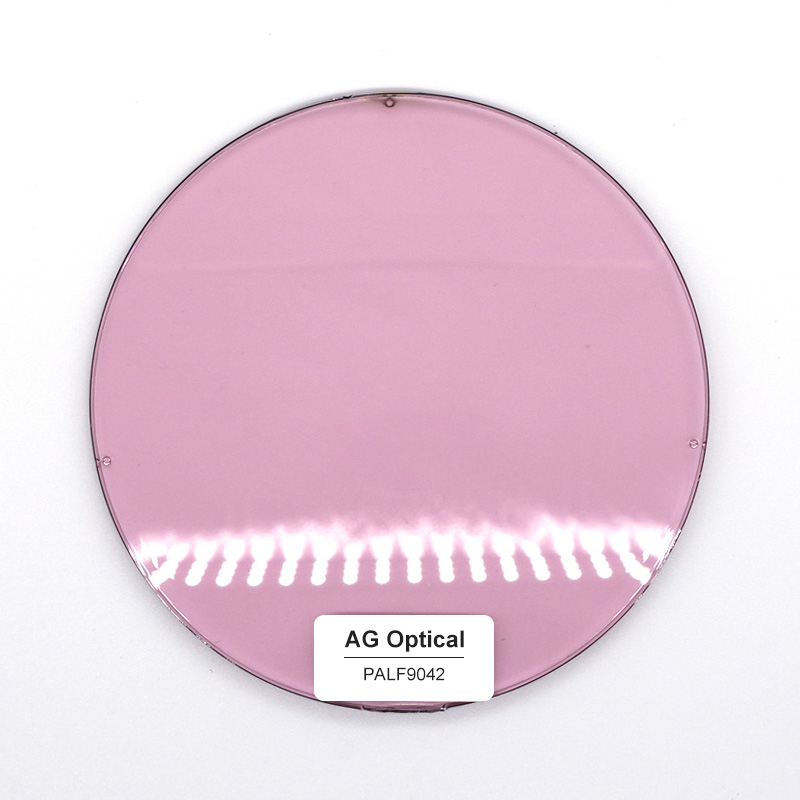AG resin lens characteristics
Optical properties
1. The surface gloss and smoothness of resin lenses are not inferior to ordinary glass lenses.
2. The refractive index of the resin lens is lower than that of the general glass lens, so the resin lens of the same degree is thicker.
3. The dispersion properties of resin lenses and general glass lenses are very similar.
4. The perspective rate of resin lenses is 92%, which is more than 2% higher than that of ordinary glass lenses.
5. The surface reflection of the resin lens is lower than that of the general glass lens, and it is also less dazzling, which is due to its higher light transmittance and lower refractive index.
6. The bifocal lens of the resin lens is composed of a whole piece, not made by fusion like a general glass bifocal lens. Therefore, the resin bifocal lens has no chromatic aberration.
7. The optical properties of the resin lens are extremely stable, and will not change at high or low temperature.

Mechanical properties
1. Resin lenses can be cast into various shapes of lenses with high transparency and optical requirements.
2. Resin lenses are easier to frame than ordinary glass lenses.
3. Resin lenses are easy to dye, and can be dyed into colored lenses with different transmittances as needed.
Physical Properties:
1. The resin lens is light in texture, and its weight is only half of the general glass lens.
2. The impact resistance of the resin lens is very strong.
3. When the resin lens is impacted and shattered, the fragments are small, the fragment area is large and the edge is blunt; the injury to the eyes and face is reduced to a minimum.
4. Although the resin lens is used for a long time, the lens surface is not easy to break.
5. The resin lens has strong impact resistance for objects with high temperature and small body shape. When such objects hit the resin lens, it will bounce off immediately; unlike ordinary glass lenses, it is easy to cause dents and spots. Therefore, in order to prevent the eyes from being hurt by flying fire debris when welding or using grinding wheels, resin lenses can be used as a defense.
6. Because the thermal conductivity of the resin lens is low, its anti-fogging property is better than that of the general lens.
chemical properties
1. Resin lenses have a wide range of resistance to chemicals and chemical solvents. With household chemicals and chemical solvents, almost no damage to the resin lens.
2. The thermal conductivity of the resin lens is low. When heated, the heat resistance is extremely high. Under a certain limit of high temperature, it is not easy to cause twisting and deformation.
